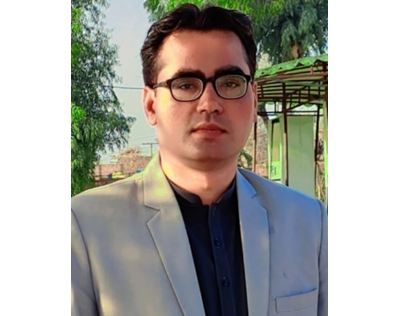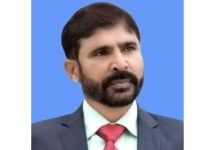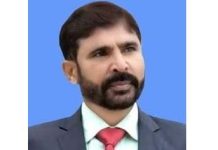Rai Muhammad Zaka Ullah Khan
After 15 continuous years in power and a total of 20 years in government, Sheikh Hasina Wajid resigned from the government and flew to India. In the past two months, she was brutally charged against students who protested against the quota system in government jobs. She imposed a curfew and arrested hundreds of students. On her orders, many students were killed and injured by security forces. According to official sources, it is claimed that more than 300 students were killed in the protests, but many unofficial sources claim the number is around 1,000. In history, those who bulldoze their own nation are among the worst. Sheikh Hasina Wajid is one of them, as she brutally charged against students protesting against state fascism.Only on one day, August 4, at least 60 students were killed by gunfire.
These protests began against the quota system when Sheikh Hasina reinstated the quota system in government jobs by judicial order. Their government provides 30% of jobs to families who participated in the 1971 independence movement against Pakistan. This quota system was banned in the past, but their government restarted it after winning a controversial election. This situation made the students angry. They said the entire nation participated in the 1971 movement, and those who took part in the movement are not able for government jobs. Providing jobs to their families is the government’s way of supporting their own supporters. It is the government’s strategy to seek power by providing civil jobs to their supporters.
These protests began two months ago, but they rapidly gained more power in the last two to three weeks. The student-led protests quickly gained momentum, with universities across the country becoming hotbeds of activism. Social media played a crucial role in organizing and spreading awareness, making it difficult for the government to control the narrative. The violent crackdown by the authorities only fueled the anger and resolve of the protesters, drawing support from various segments of society, including civil rights groups, political opposition, and international observers. The death toll, as mentioned, became a symbol of the government’s brutality, galvanizing further resistance.Although Sheikh Hasina’s government accepted some of their demands and reduced the quota system by only 3%, they allowed 97% of government jobs to be filled on open merit, which is more than what the protesters demanded. However, the students are still calling for justice for their peers who were brutally killed by the state. The situation is becoming more dangerous for Sheikh Hasina as the protests become stronger, similar to the unrest that led to the assassination of her father, Sheikh Mujibur Rahman, who turned their state into a single-party state after the separation from Pakistan. He banned other parties that opposed their authoritarian style of politics. Continuous unrest in political and economic conditions caused a military coup in Bangladesh. On August 15, 1975, Mujibur Rahman, who was the founder of Bangladesh, was killed in a military coup along with his family. Only Sheikh Hasina and her sister survived because, at that time, they were in Europe for their studies. This event was a major turning point in the country’s history and serves as a reminder of the risks that political leaders face during times of severe unrest. If Sheikh Hasina does not step down soon, she could face similar dangers to those her father faced decades ago.
On August 5, when the protests became out of control, the army chiefGeneral Waker-uz-Zamansuggested to Sheikh Hasina Wajid that she resign from her position and leave the country within 45 minutes because they couldn’t control the protesters any longer. After Sheikh Hasina resigned and flew to India, the military has taken control, with plans to form an interim government, though the transition is fraught with uncertainty. General Waker-uz-Zaman the army chief of the Bangladesh military announced in a press conference that all people should trust the army, and he fully accepted responsibility for the people’s lives and their properties. Furthermore, he stated that a joint investigation should be held to ensure that all those who brutally charged at the students are held accountable.
After the army chief’s press conference, students said, “We reject military rule.” A government led by the military is not a solution for their problems. Those who make a revolution decide the government. They demand a full-scale democratic government, not one-party rule. They demand for Dr. Muhammad Yunus, the Nobel Peace Prize laureate, has been appointed to lead Bangladesh’s interim government. This decision came after widespread protests led to the resignation of Prime Minister Sheikh Hasina. Dr. Yunus was chosen largely due to his reputation as a respected civil society leader and his work in poverty alleviation through microcredit. His appointment was strongly supported by the student leaders who played a crucial role in the protests, as they preferred a civilian-led interim government over a military one.Although Yunus was initially reluctant to take responsibility for the interim government, he eventually agreed to lead it after huge appeals from the student leaders. He acknowledged the sacrifices made by the students and the people, stating, “If the students can sacrifice so much, if the people of the country can sacrifice so much, then I also have some responsibility.” The students strongly supported his appointment, preferring a civilian-led government over a military one. As a long-time critic of Hasina’s government, Yunus is now expected to guide the country toward democratic elections.
In my opinion, these protests are likely to push Bangladesh into serious economic and political trouble. The disruptions have already hit important economic sectors. Continued unrest could further scare off investors, making the economic situation even worse.On the political side, there is a real danger that the country could fall under military rule, which is something that often happens in third-world countries after major uprisings. For example, after the Arab Spring, many countries like Libya and Syria experienced turmoil, as did Iran, which ultimately resulted in the total destruction of their economic, social, and political conditions and led to another authoritarian government system. This system enacts discriminatory laws against women’s rights and civil liberties, as has happened in Iran after the Islamic Revolution against Shah’s government in 1979. Additionally, Bangladesh’s past shows that the military has stepped in during times of political crisis, making this risk even more real. However, what has happened in recent weeks also demonstrates the incredible power of student activism and political awareness. The students of Bangladesh have proven that when people understand their rights and are willing to fight for them, nothing can be done against those rights. They also prove that if a nation stands up for its rights against any fascist government, it can achieve them. Never underestimate the power of the people.

















